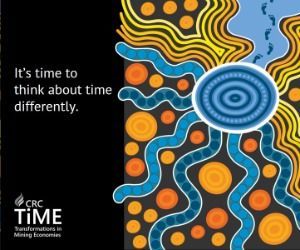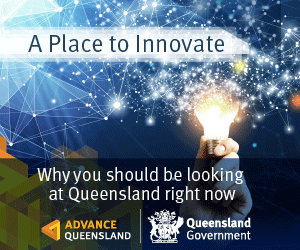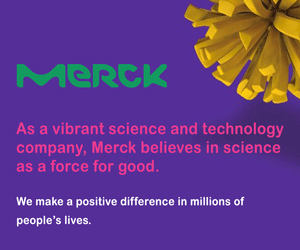1MG FlippingBooks
Australian innovation can promote digital equity beyond our borders
IBM’s Nicholas Flood on why Australia must leverage its innovation prowess to drive digital transformation, not only at home but also for regional neighbours..

We face our fair share of challenges in today’s world, and we can certainly do more to make things better for Australians and our communities. But what if we could harness the innovation and expertise of our incredibly talented people, and also help our regional neighbours speed their digital transformations?
I’m excited about a future where win-win outcomes drive not only a successful Australia, but also a more inclusive and prosperous region and world.
Let’s take artificial intelligence as one example. The latest advancements in generative AI, which refers to deep-learning models that can generate high-quality text, images, and other content based on the data they were trained on, have organisations waking up to the full potential of the technology.
Foundation models are set to radically change how businesses operate. An upcoming study from IBM found 41 per cent of IT professionals say their company is currently exploring generative AI and 27 per cent are actively using it.
But for AI today, there are too few rules of the road. Like any technology going through a rapid development, AI can be hazardous if developed in the wrong way, especially in business and government settings. AI is one example where I know Australia can lead the way, and in doing so, help our regional neighbours adopt AI in a safe, empowering way.
I run the Australian arm of business for a global enterprise that provides AI and hybrid cloud technology and services. I understand the pressure many Australian business leaders feel to maintain sustainable growth and competitive advantage.
Yet I feel our business is at its strongest when our experts demonstrate how effective solutions can revolutionise communities, creating meaningful improvements for people. We can create a connection that improves engagement with our clients, our partners, and our employees. Why not expand this sense of helping communities beyond the borders of Australia?
Good for our neighbours
Our regional neighbours can benefit from our help to leapfrog digitalisation.
They have some of the largest and fastest growing populations in the world, yet below average Human Development Index scores (HDI). This index, from the United Nations, is a summary measure of three key dimensions: longevity and health, years of education, and standard of living.
Take Indonesia, a country of 282 million, now classified as a “newly industrialised” nation. Indonesia’s HDI in 2022 was still only 0.72 while Australia has a HDI of 0.95. But the digital economy in Indonesia has been rapidly growing since the COVID-19 pandemic started, creating many opportunities for business and progress. Meanwhile, in Papua New Guinea, many live in poverty with an HDI of 0.56. The combined population of Fiji, Solomon Islands, Tonga, Vanuatu, Samoa, and Micronesia is bigger than the population of South Australia, yet these South Pacific island nations have HDIs that range from 0.56 to 0.75. I ask myself if we, if I, have a moral obligation to share what we know so that our neighbours can benefit.
A more mature digital economy could help improve HDI markers such as standard of living.
Good for Australia
When our regional neighbours have world-class digital economies, Australia reaps the benefits.
The state of other nations’ digital economies impacts international trade. Through our technology talent and offerings, we gain access to those growing economies, building connections that are good for people as well as for business – connections that could lead to significant economic opportunity for Australia, including major export contracts for big tech companies.
Australia could become an exporter of technology and innovation, just as we’ve harnessed this spirit of opportunity creation at home.
We can start by helping our regional neighbours assess and measure the current state and performance targets for their digital infrastructure.
Something cannot be improved until it can be understood, and something cannot be understood until it can be reliably measured with properly managed data. Success markers might be things like equal access to services of government.
The ethical application of AI plays a role here, as one example. There are organisations in Australia who can help: corporates, chambers of commerce, and government agencies such as the Digital Transformation Agency, and The Department of Foreign Affairs and Trade. Smart and influential people within Australia are thinking about and working on this issue now – continuing to build the dialogue around the best way forward. And where to start? Priority focus areas for assistance could be private industry, government (tax), NGOs, and higher education.
A fair go
As a proud Australian, I’m convinced that the application of technology can help all people on the path to prosperity. It can help us maintain, improve, and expand the wonderful egalitarian society we desire, even beyond our Australian borders. I feel grateful that my current role gives me the opportunity to work on initiatives aligned to my values.
Digital equity could be considered a basic human right like clean drinking water and food security. We are at the dawn of a new ICT era, especially with the acceleration of AI and the advent of quantum computing. Skills and acumen are needed to operate, maintain, and upgrade the ICT systems, meaning that talent transfer is a major part of the solution and the outcome.
I invite you to join me in seizing this opportunity for Australia and our regional neighbours, to co-create a future that gives everyone a fair go.
Nicholas Flood is the Managing Director of IBM Australia and VP Technology. IBM celebrated 90 years of continuous operations in Australia in 2022, and is a leading provider of global hybrid cloud and AI, and consulting expertise.










